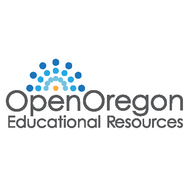
(View Complete Item Description)
PSY 201 - GENERAL PSYCHOLOGY
Credits - 4 Lecture - 4
The first of two survey courses of the basic concepts and principles of psychology. Specific topics include: the history of psychology and research methods of psychology; the biological basis of behavior, sensory and perceptual processes; states of consciousness including sleep and dreams; learning, memory, and intelligence. Emphasis is both theoretical and applied.
COURSE DESCRIPTION
This course is the first of two courses that are designed to provide an introduction to the subject of psychology. In taking these classes, you will learn about the history of psychology, basic principles of psychology, and the many areas of study that psychology is related to. Biological, cognitive, behavioral, and affective areas of study will be discussed. This information provides a basis of knowledge for further study in psychology and may also be applied to your own life.
During this quarter we will study topics such as the history of psychology, the brain and its relation to psychological functioning, how science applies to psychology, learning, memory, thought and intelligence, sensation and perception, and sleep and dreaming. As you are introduced to each new concept, a greater understanding of how psychology affects our everyday lives will emerge.
COURSE OUTCOMES
Outcome 1: Demonstrate core psychological knowledge
Objective 1.a: Define and use psychological terms
Objective 1.b: Describe psychological concepts and relate to everyday life
Objective 1.c: Apply psychological theories to issues in everyday life
Outcome 2: Differentiate between empirical and other methods of inquiry
Objective 2.a: Discuss ways to scientifically respond to a psychological question
Objective 2.b: Identify various research designs and their applications to a research question
Objective 2.c: Interpret and evaluate qualitative and/or quantitative data
Outcome 3: Apply knowledge and skills to contemporary psychological issues
Objective 3.a: Identify and evaluate information resources
Objective 3.b: Communicate knowledge of issues through writing and discussion
Outcome 4: Recognize the diversity of human experience and thought individually and collectively
Objective 4.a: Describe how nature and nurture influence the individual
Material Type:
Module,
Syllabus
Author:
Sara Reyburn




















